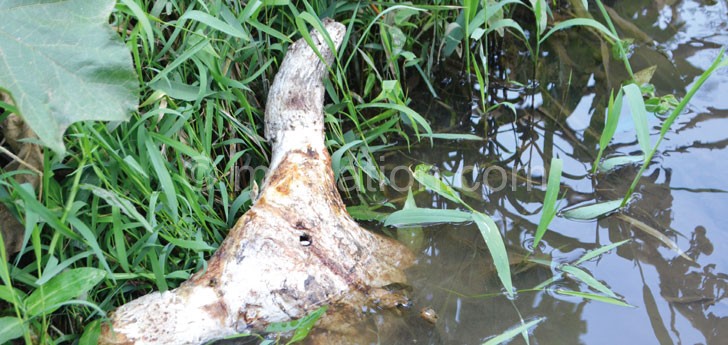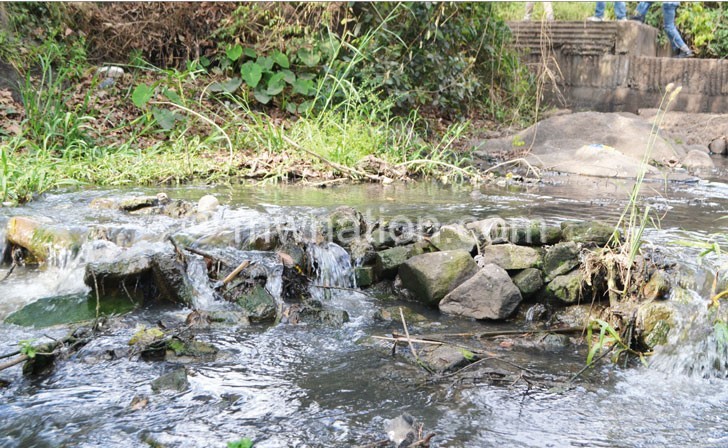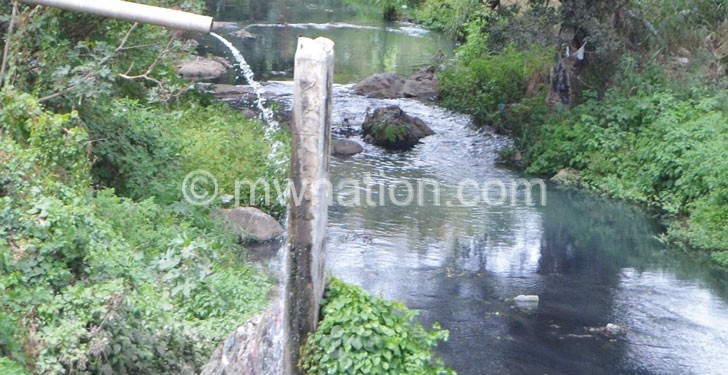How industry is poisoning you
As if eating and drinking faeces is not enough danger and humiliation for Malawians, Weekend Nation has found that people are also consuming heavy metals and chemicals that industries are emitting into rivers and the collapsed sewer system.
Various studies carried out in Blantyre on several rivers that pass through industrial areas have found a high concentration of heavy metals in water near companies and downstream.

A 2007 study titled ‘Water Quality Assessment in Streams and Wastewater Treatment Plants of Blantyre, Malawi’ by S.M.I. Sajidu, W.R.L. Masamba, E.M.T. Henry and S.M. Kuyeli confirms the presence of these toxic metals on vegetables.
“ Lead and copper concentrations of up to 385 milligrammes per kilogramme (kg) and 127 milligramme per kilogramme, respectively, in rape and lead levels of up to 424 milligram per kilogramme in Chinese cabbage were detected in vegetables which were grown on soils amended with the city’s sludge.
“Studies on soil samples near major roads in Blantyre showed high concentrations of lead, zinc and cadmium,” reads the report.
Heavy metals are associated with toxicity and contamination of water that some people drink while others use them for watering vegetables where the lethal metals and chemicals get stuck and people end up consuming them.

Heavy metals such as lead says the Centre for Hazardous Substance Research of the United States’ Kansas University has health effects that include kidney and brain damage; affect organs that produce sperms, lead to miscarriages in pregnant women, cause cancer, weaken one’s immunity and retard growth and development, especially in children.
The study collected water for samples from Mudi and Nasolo streams in Blantyre behind Dairiboard Malawi Limited and Grace Bandawe Conference Centre, respectively before the streams pass through heavy industrial area and after passing through the industrial area near SR Nicholas, where the two streams join.
Another study, done in 2013 titled ‘Water Quality in Malawi-Effluent Water from a matchstick factory in Blantyre’ done by a Swedish University of Agricultural Sciences student Johanna Schütz found that the concentration of metals such as chromium and zinc largely exceeds the tolerance limit set by the Malawi Bureau of Standards (MSB) for wastewater.

Schütz was studying effluent water analysing chromium, zinc, inorganic anions sulfate, nitrate, chloride and potassium that are used in the production of match sticks from Leopard Match Limited in Blantyre that discharges its waste water in Mudi River.
In the report, Schütz said the results were compared to the limit values for effluent water according to the MBS and said the concentration of chromium, zinc and nitrate ions was above the tolerance limit.
“The study found that the concentration for chromium in both samples was much higher than the tolerance limit from the [Malawi Bureau of Standards] MBS, 0.05 milligram per litre; and the concentration of nitrate in the effluent water was 536 milligram per litre; which is significantly higher than the tolerance limit from the MBS (50 milligram per litre).
“The concentrations of total chromium, zinc and potassium were measured with [atomic absorption spectroscopy] AAS, and concentrations of chloride, sulfate and nitrate were measured with [ion chromatography] IC.”
Another problem is that the physics and chemistry of the earth streets’ drainages are connected to streams without having been subjected to any wastewater pretreatment.
And in a 2012 Millennium City Initiative (MCI) study on Water And Sanitation Needs Assessment for Blantyre City, Moumié Maoulidi found that Blantyre City liquid waste is supposed to be processed through a series of settlement tanks, filters and aeration ponds, but due to poor maintenance, the liquid waste often does not go through the treatment process and flows untreated directly into the Mudi River.
“Poor wastewater management is an acute problem throughout PAGE 4 Blantyre, but is especially so in unplanned settlements, where the lack of proper drainage and overflowing latrines results in wastewater flowing indiscriminately into open spaces or their immediate surroundings,” reads the report.
Maoulidi also said the Blantyre plant at Manase, for instance, processes residential sewage as well as industrial effluent from companies such as Carlsberg, Dairiboard, Chibuku Breweries, Cold Storage Company and Mapeto David Whitehead Textile Company. A 2005 study by O. Phiri, P. Mumba, B. H. Z. Moyo and W. Kadewa on the Assessment of the Impact of Industrial Effluents on Water Quality of Receiving Rivers in Urban Areas of Malawi observed that the water in the river was polluted and not good for human consumption.
“It is, therefore, recommended that the careless disposal of the wastes should be discouraged and although the values in some cases were lower than the allowable limits, the continued discharge of the effluents in the river may result in severe accumulation of the contaminants and, unless the authorities implement the laws governing the disposal of wastes, this may affect the lives of the people,” reads the report.
Head of Physics and Biochemical Science Department at The Polytechnic Chikumbusko Kaonga said the industries were supposed to have stabilisation ponds where waste water from the industry would be treated before being discharged into a public sewer system.
“There is no evidence that the stabilisation ponds are working in the industries and that leaves that wastewater being directly channeled to the wastewater treatment facility at Manase in Blantyre, which is also not functioning,” he said.
He also observed that the wastewater treatment system was designed to deal with organic components that are degradable and cannot handle certain metal and chemical particles.
“Now that the wastewater treatment system is no longer working, it means that metal and chemical particles are getting into vegetables watered using the wastewater. Eventually, they would accumulate in people’s bodies and cause diseases like rushes and cancer,” he said.
A senior lecturer in Environmental and Sanitation Department at the Malawi Polytechnic Khumbo Kalulu said these chemicals and metals would even be found in river sand that people use in constructions posing a high risk to the people who use the sand.
“The sand from the contaminated rivers can also pose a health hazard to people that use it. There will be some chemicals that would cause skin diseases and other ailments,” he said.
Phatiswayo Mughohgo of Leopard Matches Ltd, in an email response acknowledged receipt of our inquiry but asked for the report.
“The person who deals with this is out of the factory in Mzimba. You will get a response once he accesses the email.”





